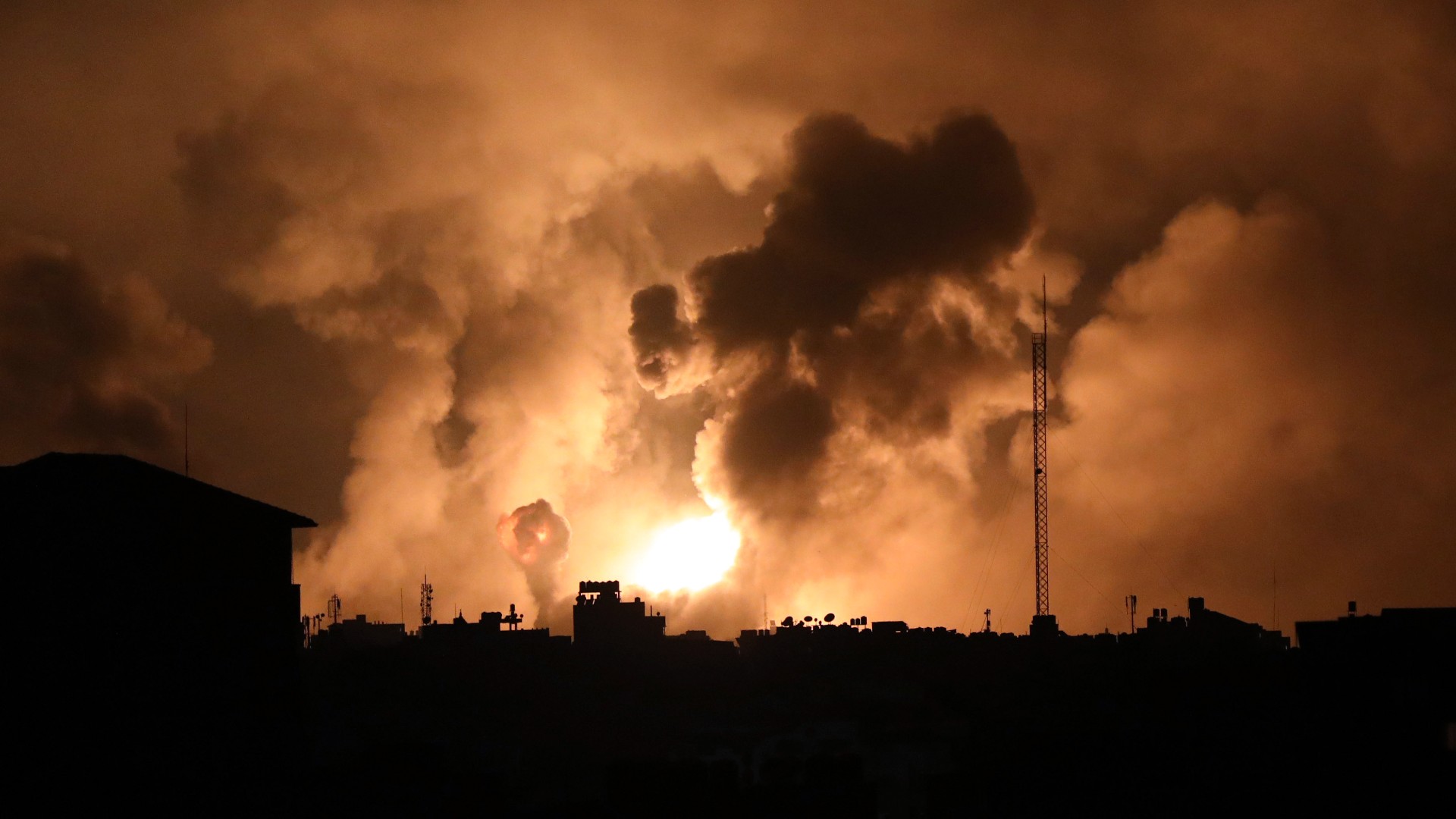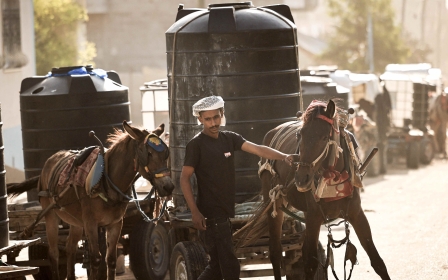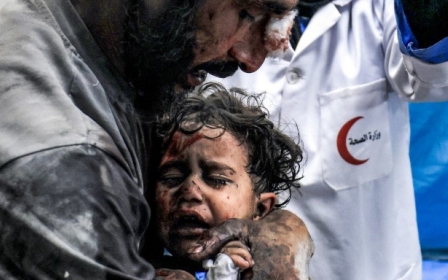Israel-Palestine war: Gaza blackout leaves Palestinians wondering if families alive or dead
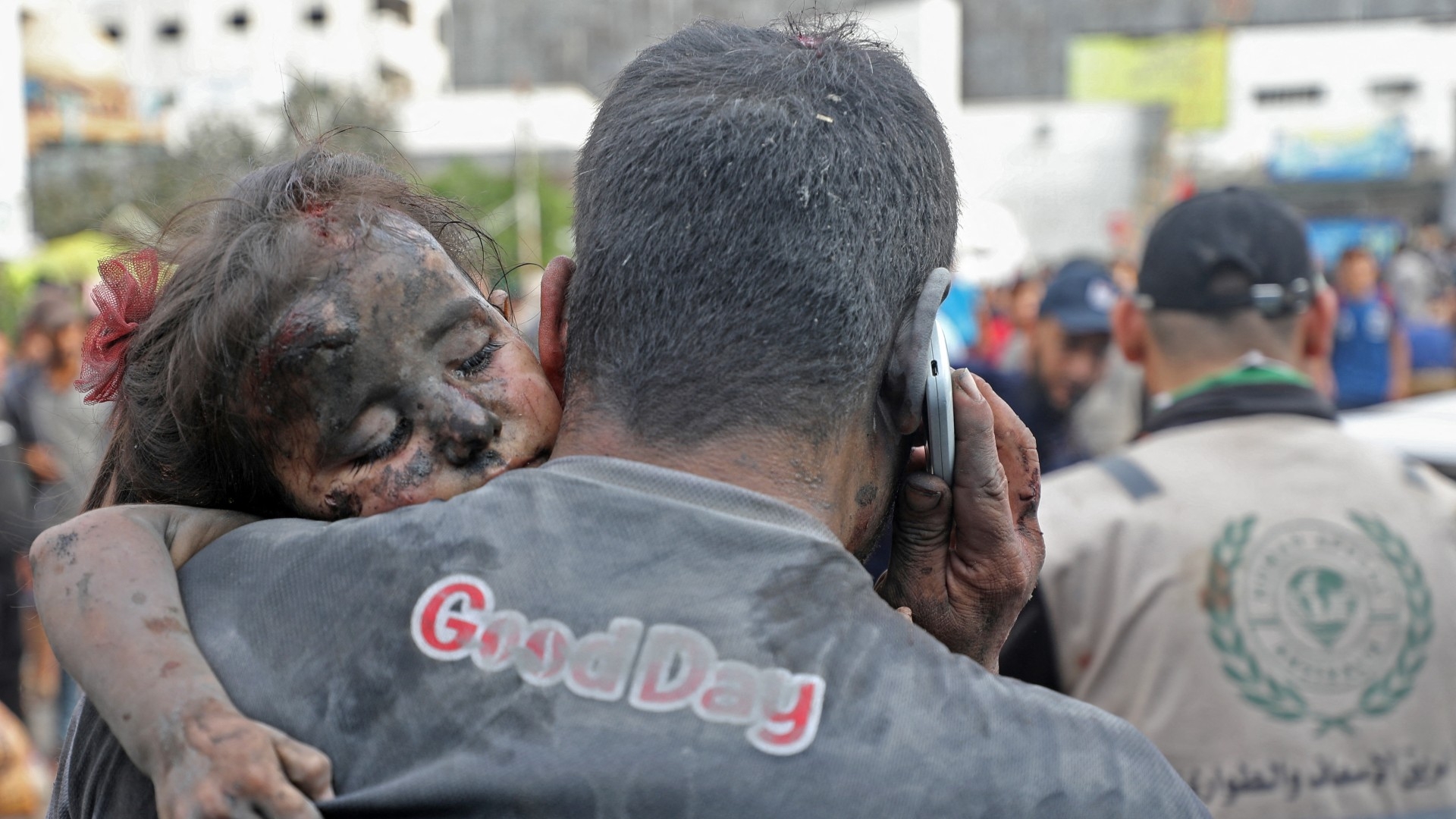
It took two days for Samira Saber to find out if any of her relatives had been killed when her uncle’s house in Gaza was bombed.
Displaced by bombing, and with no access to phone networks after Israel imposed a total communications blackout, she only heard about the strike on the house after her brother, who works for a relief aid organisation, passed by the place she is currently sheltering to tell her in person.
All phone and internet connections were cut off in the Gaza Strip for 36 hours from around 5pm on Friday, a precursor to the heaviest night of aerial, artillery and naval bombardment the coastal enclave has been subjected to in three weeks of conflict.
As a result, the 2.3 million Palestinians in Gaza were not only cut off from the outside world - but from each other.
Human Rights Watch warned at the time that the information blackout risked providing cover for mass atrocities.
New MEE newsletter: Jerusalem Dispatch
Sign up to get the latest insights and analysis on Israel-Palestine, alongside Turkey Unpacked and other MEE newsletters
The blackout endured for two of the most horrifying nights Gaza’s residents have lived under since 7 October, when a Hamas-led attack on Israeli communities was followed by a relentless Israeli bombing campaign.
Around 1,400 Israelis were killed by Palestinian fighters in that attack and more than 8,000 Palestinians have since been killed by the Israeli military. The vast majority of both tolls were civilians, many of them children.
With no ability to call the emergency services over the weekend, the families of Palestinians killed and wounded have had to carry them to hospitals.
Paramedics and search-and-rescue teams were meanwhile paralysed, stuck in their headquarters as they were unable to identify locations that had been attacked.
Blackout
After Saber’s brother gave her the news on Saturday morning and left to continue distributing aid, she sat on the stairs of the house she was sheltering in and burst into tears.
More than 60 people displaced from Gaza City, who were also staying in the house in central Gaza’s Deir al-Balah, gathered round to comfort her. Around 1.4m Palestinians in Gaza have been displaced by the air strikes and Israeli threats of imminent death.
“They are still under the rubble. Can you imagine that it has been two days, and they are still under the rubble? They cannot be alive, I hope they have already died,” Saber told Middle East Eye.
Follow Middle East Eye's live coverage for the latest on the Israel-Palestine war
“How would I know when they are pulled from the rubble? How can I wait now until [my brother] passes by again tomorrow or the next day?”
As the driver of an aid distribution bus, Saber’s brother is considered almost “privileged” to be able to access his friends and family as part of his rounds.
Israel cut off Gaza from all outside fuel supplies, as well as food and water, making it near impossible for most Palestinians to move between different areas of the enclave.
“He told me that my uncle, his wife and their children were under the rubble, and no civil defence crews could immediately reach them when their home was targeted at night,” she said.
“They only managed to find the building in the morning as they were roaming the targeted areas looking for the bombed homes.”
On Sunday morning, around 35 percent of Gaza’s telecommunications services were back.
The first thing Saber did was call her relatives to find out if her uncle’s family survived.
“My uncle was pulled from the rubble alive. But his wife and one of his twin girls were killed. The other twin girl was pulled out alive, but her legs were completely burned,” Saber said.
Isolation and uncertainty
For two days, each neighbourhood in Gaza was forced into complete isolation.
Not being able to contact friends and family elsewhere was hell. Making matters worse was the lack of information about what was happening: Palestinians worried the Israeli ground offensive may have been beginning - a prediction that proved correct.
Under darkness and bombardment, journalists were also unable to collect information and report on the situation to the outside world.
FM radios still worked, however, with Palestinians gathering around them as occasional bits of general information about the areas targeted by the bombing were transmitted.
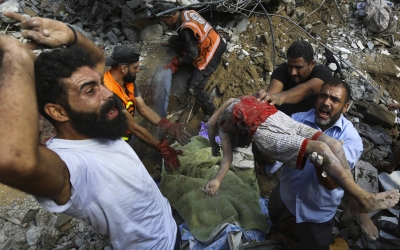
“I left my husband for only one day to visit my family here and I lost contact with him two hours later. I had not seen my father for the past two weeks and I needed to come,” Rawia Salama, a displaced 26-year-old, told MEE.
“The night was so long as we listened to the news about the targeting of the area where my husband and his family were. My phone was showing that there was no sim card inserted, although it was there. But the network was completely down.”
On Saturday morning, Salama’s husband drove from the southern town of Khan Younis to the central Gaza Strip, where her family was sheltering.
“I found him at the entrance door and I almost collapsed. He could not reach me by any means and he risked his life to come get me and our children. I was relieved he and his family were okay.”
After they returned to Khan Younis, Israeli forces separated Gaza’s north and south by bombing the roads connecting them.
As of Monday morning, those displaced in the southern and central areas cannot reach their homes in Gaza City and the rest of the north. Meanwhile, Israeli tanks have been spotted rolling along Salah al-Din, the main north-south road.
Middle East Eye delivers independent and unrivalled coverage and analysis of the Middle East, North Africa and beyond. To learn more about republishing this content and the associated fees, please fill out this form. More about MEE can be found here.


